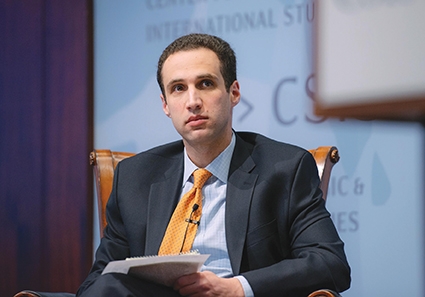On the Wars & East-West Relations
INTERVIEW, Voice of America
Aiming to take a closer look at US Vice President Mike Pence’s recent reassurances to Georgia, the anniversary of the Russia-Georgia war and other aspects of Georgia's foreign policy, we spoke to Jeffrey Mankoff, Deputy Director of the Russia and Eurasia Program at the Center for Strategic and International Studies.
How would you summarize Pence’s main message to Georgia?
I think the Vice President has become the point person for the Administration on providing reassurance to the US allies and partners on the Eastern flank of Europe, along with Secretary Mattis. I think his goal while traveling there was to reassure Georgia and others of US support and to confirm that the US considers the Russian threat and challenge to these countries as something it would push against. The question that many people in the region and here have is the extent to which the Vice President or anybody else can speak for the US Administration and to what degree there is a coherent approach to any of these issues. I don’t have an answer to that, I doubt anybody does. These reassurances from Pence are very promising for Georgia, Estonia and others, but until there’s a message to back it up from the President, there’s still going to be a degree of concern in those countries about the US support they can expect.
Putin travelled to Abkhazia on August 8. How would you characterize Russia’s activities on Georgia’s borders in South Ossetia and Abkhazia?
Putin’s visits to the region are in line with the Russian ambition over the last several years to align separatist regions politically, economically and in security terms with Russia. With South Ossetia, this has gone quite far; with Abkhazia it has been quite obstreperous. But there is an interest in the Kremlin to maximize direct Russian control of the region. At the same time, if not heading down the path of formal annexation, which was the case in Crimea leading to the sanctions, having de-facto control of these regions over the longer term is within the Kremlin’s interest. Moreover, moving the border posts along the lines of contact is a way for Moscow to keep a continuing pressure on Georgia, and to signal that the status-quo, established in 2008 is not the final one and what happens there in the longer term is going to depend on the political conjunction of the larger context of Russia’s relations with the West.
Do you think Russia’s actions in Ukraine could have been prevented by a stronger international reaction to Georgia’s occupation?
The US denounced Russia’s actions in Georgia in 2008 but did not move in a kinetic way. I think the US lacked options: Russia moved very quickly and the fighting was over in five days. There has been a lot of criticism of the Bush and Obama administrations for wanting to normalize and hit a reset process with Russia without considering the de-facto situation in Georgia. It’s an issue for debate and I don’t fault any of them for going down that path. But the Russians took away a lesson when they didn’t face long-lasting effect: they were determined they could get away with a similar scenario in Ukraine. In some ways, it was a miscalculation. Ultimately, it changed the contours of relations between US and Russia, and Russia and the EU in pretty fundamental ways, in a way that the invasion of Georgia did not.
What are your arguments for or against providing defensive weapons to Georgia, considering the big picture that the country lives under Russia’s illegal occupation?
I have no objections to providing lethal, defensive assistance to Georgia. I think if it’s done, it’ll be a political decision and has to be part of a larger political calculation. Congress recently restarted a conversation on providing lethal assistance to Ukraine. Again, in principle, I don’t think there is anything wrong with providing that assistance but given where the conflict currently is, a low-level, simmering conflict, I doubt the provision of US or European defensive assistance is going to make a decisive difference in the fighting in Ukraine and is likely to complicate the politics even further. So, while the timing isn’t great, if there’s a large-scale resumption of fighting, it’s an option that needs to be kept on the table for both Ukraine and Georgia.
What’s your view of Georgia’s Euro-Atlantic integration efforts?
Georgia’s moving as well as it can, given the political headwinds. The Association agreement was signed and is being implemented and the Georgian government is conducting reforms to bring the country closer to European standards. At the same time, there is less appetite in Brussels for bringing the new members into the EU or NATO, and that is just a fundamental reality that Georgia and other post-Soviet countries are going to face for some time in the future. The challenge for these institutions is to provide incentive for these countries to go ahead with the reforms and to remain valuable partners to the West when the lure of membership in these organizations is off the table at least in the foreseeable future.
Anna Kalandadze, Voice of America Georgian Service












